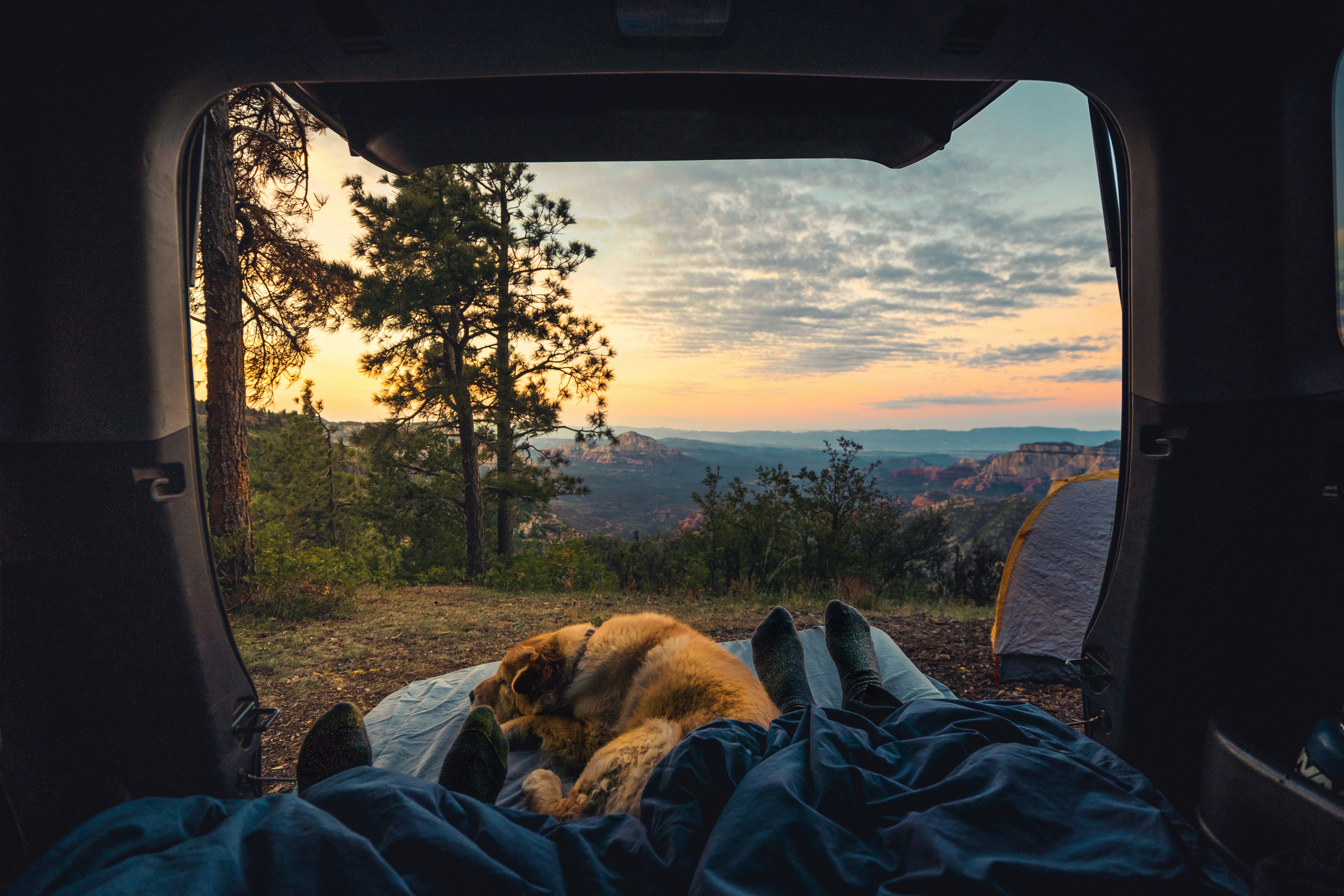Camping With Hearing Loss

Camping With Hearing Loss
5 mins
Published: 28 May 2025
28 May 2025
What You Need to Know About Camping With Hearing Loss
Whether you’re pitching a tent by the beach or setting off on a hiking adventure, camping offers a chance to reconnect with nature and yourself. If you’re living with hearing loss though, you might wonder how the camping experience will be different - and if you’ll feel confident.
With some careful planning, you can camp safely and ensure you make the most of every moment.1 This guide shares practical tips for navigating the outdoors with hearing loss, from keeping your hearing aids safe to staying connected on your trip. Let’s dive in!
Plan Ahead For Smooth Communication
Before heading outdoors, it’s important to take time to with hearing accessibility in mind. Be sure to research the camping area before you go so you are familiar with the terrain, any permits or regulations you will need, and potential obstacles like lack of reception.
For a seamless adventure, be sure to:
- Talk to your fellow campers and plan together: If camping with others, let them know about your hearing needs early on. Ask them to face you when speaking, speak clearly, and use visual cues when possible.
- Communicate your location: Make sure someone outside of your camping trip knows where you are and how long you will be there. Given some campsites don’t have reception, be sure to communicate this ahead of departure and tell them when they can expect to hear from you.
- Use visual cues: Carry a notepad and pen for written communication, and consider visual cues like hand signals as a means of communication when hiking with camping partners.
- Check your hearing aids: Make sure your devices are in proper working order and have been checked by a professional.
- Charging your device: Fully charge your device the night before departure to ensure uninterrupted use. For rechargeable hearing aids, pack your charging unit and consider bringing a portable power bank for on-the-go charging, especially during long travel days or in areas with limited access to power outlets.
Protecting Your Hearing Aids From The Elements
No matter how prepared you may be for your camping trip, the elements can be unpredictable. It’s not uncommon to be exposed to moisture, dust, and swings of temperature - all of which can affect hearing aids.
Here’s how to protect them outdoors:
- Use a hard-shell, waterproof storage case: If your hearing aids aren’t waterproof, water can damage the technology inside them. Protect your hearing aids from moisture by having a waterproof storage case or keeping them in a zip-lock bag when not in use.
- Clean them thoroughly: It’s easy to get dirty when camping, but dirt can also block or damage hearing aid technology. Pack a cleaning kit to give your hearing aids a wipe down at the end of the day.
- Pack extra batteries or a portable power bank: If your hearing aids are rechargeable, consider bringing a charger or car adaptor to ensure you can keep using them while off-grid.
- Apply sunscreen and insect repellent before inserting hearing aids: These substances can clog microphones and damage your hearing aids.
- Avoid leaving them in direct sunlight: Excess heat can damage the internal components. Keep your hearing aids safe by storing them in an insulated pouch and in the shade.
Stay Aware Of Your Surroundings
When camping, you’ll find audio cues in your surroundings - from the sound of nearby wildlife to the and sudden changes in the weather.2
If you have hearing loss, staying alert may require the following strategies:
- Camp with a buddy: Having someone nearby who can help you stay aware of what’s happening around you is invaluable.
- Consider hearing aids with adaptive sound features: Environmental noise filtering can help you focus on important sounds while reducing background noise.
- Stick to marked trails where there are signs and clear paths: Whether you’re exploring on foot or driving, be sure to stick to areas with clear visual cues and information boards.
- Bring a vibrating alarm or flashlight for overnight safety: These tools can help wake you up in the case of an emergency or alert you to wildlife or weather changes.
Hearing loss doesn’t mean you have to give up the outdoors. In fact, the use of hearing aids can even help deepen your connection to nature.3 With less reliance on sound, you may find yourself paying closer attention to visual details, body language, and the calming rhythm of nature.
Before you go camping, it’s worth booking a hearing check at your local . They can clean and check your hearing aids and make any necessary adjustments to account for the difference in environmental noise. Our friendly team will help you manage any concerns so you can prioritise your hearing health and enjoy your next outdoor adventure.
References:
- Ear Hear (May 2025), , accessed 8 May 2025.
- American Journal of Audiology (24 March 2025), , American Speech Language Hearing Association, accessed 8 May 2025.
- Ear Hear (7 November 2024), , National Library of Medicine, accessed 8 May 2025.
Author
Connect Hearing
Reviewed by:
Connect HearingSonova
.png?branch=web_prod)
.png?branch=web_prod)